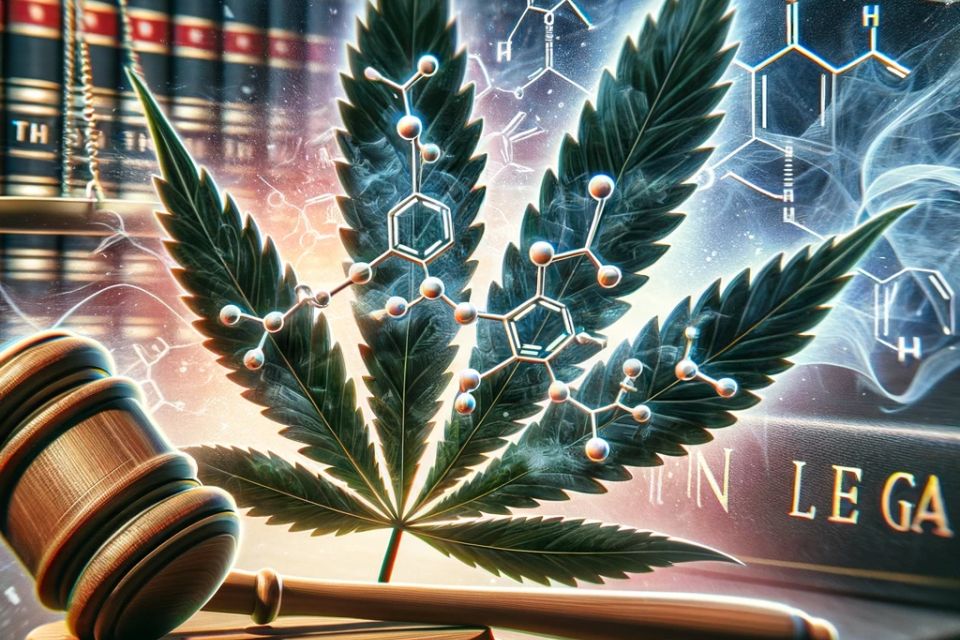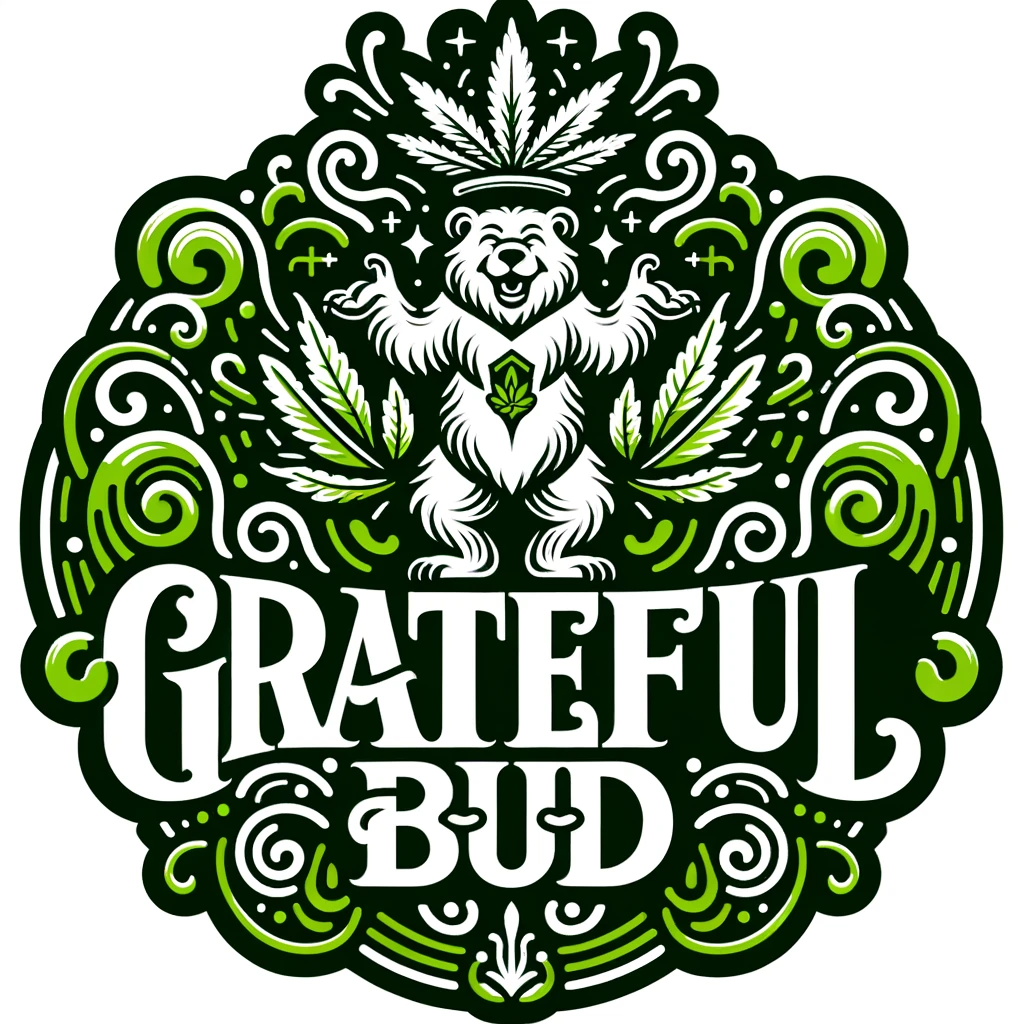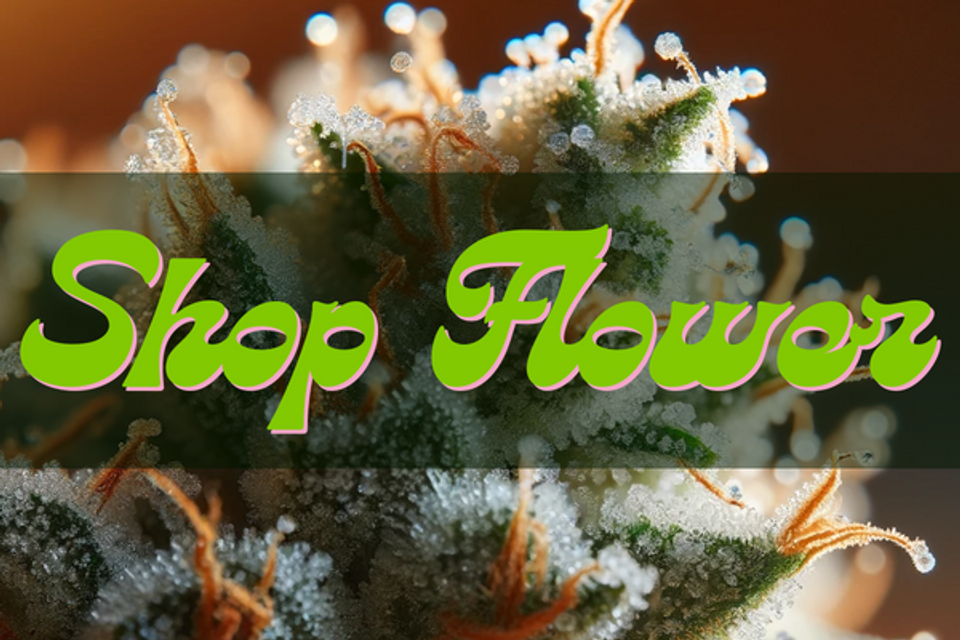
THCA, or Tetrahydrocannabinolic acid, is a non-psychoactive cannabinoid found primarily in fresh, undried cannabis. Unlike THC, the more commonly known component associated with cannabis's psychoactive effects, THCA does not produce a high. This difference has significant implications for the legal status of THCA, which varies significantly from the regulations surrounding THC.
In recent years, there has been growing interest in THCA for its potential therapeutic benefits. This has led to an increase in the availability of THCA products, particularly in regions with legalized cannabis markets. However, understanding the legal nuances of THCA can be complex due to varying laws at the state and federal levels.
THCA is essentially the precursor to THC. In the cannabis plant, THCA is found in abundance, but it does not become psychoactive until it is decarboxylated, a process typically achieved through heat. This transformation occurs when cannabis is smoked, vaporized, or cooked.
In its raw form, THCA has shown potential in various therapeutic applications, such as anti-inflammatory and neuroprotective effects. While research is still ongoing, early studies suggest that THCA could play a role in managing conditions like epilepsy, arthritis, and neurodegenerative diseases.
How is THCA Legal?
The legality of THCA is a complex and somewhat ambiguous issue, primarily due to its relationship with THC and the varying legal status of cannabis itself. The key factors influencing THCA's legal status include:
Federal Laws: At the federal level in the United States, cannabis is classified as a Schedule I controlled substance under the Controlled Substances Act. This classification includes THC but does not explicitly mention THCA. However, under the Federal Analogue Act, compounds similar to a controlled substance can be treated as illegal, creating a gray area for THCA.
State Laws: The legal status of THCA often depends on state laws regarding cannabis. In states where cannabis is legal for medical or recreational use, THCA is generally legal as well. These states regulate the production and sale of cannabis and its derivatives, including THCA. Conversely, in states where cannabis is illegal, THCA may also be considered illegal, especially if it's perceived as a THC precursor.
Law Enforcement and Judicial Interpretation: The interpretation and enforcement of laws concerning THCA can vary significantly. In some regions, law enforcement may overlook THCA due to its non-psychoactive nature, while in others, it might be strictly regulated.
Evolving Legal Landscape: As cannabis legislation continues to evolve, both at the state and federal levels, the legal status of THCA could become more clearly defined. This is particularly likely as more research highlights the distinct differences between THCA and THC, especially in terms of psychoactivity and potential health benefits.
The legal status of THCA is somewhat paradoxical. In the United States, cannabis and its derivatives are classified as Schedule I substances under the Controlled Substances Act, which includes THC. However, THCA is not explicitly listed as a controlled substance. This technicality creates a legal gray area.
In states where cannabis is legal, products containing THCA are typically available and legal.
However, the situation is different in states where cannabis remains illegal. In these areas, the legality of THCA is uncertain, and possession of THCA could potentially lead to legal repercussions similar to those associated with THC.
Federal and State Laws
The legal status of THCA in the United States is a complex and evolving issue. At the federal level, the Controlled Substances Act (CSA) does not explicitly list THCA as a controlled substance. This differs from THC, the psychoactive component of cannabis, which is classified as a Schedule I drug. However, the complexity arises from the Federal Analogue Act, which can classify substances "substantially similar" to controlled substances, like THC, as illegal. This creates a legal ambiguity for THCA, especially when it is in a form that can easily convert to THC.
At the state level, the legality of THCA largely depends on the legal status of cannabis. In states where cannabis is legal for medical or recreational use, THCA is generally legal. These states have their own regulations governing the production, distribution, and possession of cannabis and its derivatives, including THCA. However, in states where cannabis remains illegal, possessing THCA could potentially lead to legal issues, as it could be viewed as an analogue of THC.
Interpretation and Enforcement
The interpretation and enforcement of laws concerning THCA vary significantly across different jurisdictions. In some states, law enforcement agencies may not prioritize action against THCA due to its non-psychoactive nature. However, in others, there might be stricter enforcement, especially if THCA is perceived as a precursor to THC.
Furthermore, the legal landscape is complicated by the issue of how THCA is marketed and sold. Products that explicitly state they contain THCA, or are intended to be used in a way that converts THCA to THC, may draw more scrutiny from law enforcement and regulatory agencies.
Legal Precedents and Cases
There have been a few legal cases and rulings that touch on the status of THCA. These cases often revolve around the interpretation of state laws regarding cannabis and its derivatives. The outcomes of such cases can set precedents and influence how laws are applied in similar situations. However, given the relative novelty of THCA in the legal sphere, there is still a lack of extensive legal precedent specifically addressing it.
Future Legal Developments
The legal landscape for THCA is likely to continue evolving, especially as more research is conducted on its therapeutic benefits and as public attitudes towards cannabis change. Legislative changes at both the federal and state levels could further clarify the status of THCA. Additionally, increased interest in the medical and wellness potential of cannabis may lead to more nuanced legal frameworks that differentiate between psychoactive and non-psychoactive components.
In conclusion, the legal status of THCA is a nuanced issue, influenced by federal and state laws, the enforcement priorities of various jurisdictions, and the ongoing evolution of cannabis legislation. As the cannabis industry grows and evolves, it is likely that the legal landscape surrounding THCA will become clearer and more defined.
The burgeoning interest in cannabis for wellness has spotlighted THCA. Many cannabis users are turning to THCA for its potential therapeutic benefits without the psychoactive effects of THC. This has led to a surge in products like THCA oils, tinctures, and edibles, particularly in states with legal cannabis markets.
Moreover, the medical community is increasingly interested in the potential of THCA. Although clinical research is in its early stages, preliminary findings are promising. This interest could lead to more widespread acceptance and use of THCA in therapeutic contexts, further complicating its legal status.
THCA, a non-psychoactive compound found in cannabis, differs significantly from its psychoactive counterpart, THC. While it doesn't produce a high, THCA has garnered interest for its potential therapeutic benefits. Its legal status, however, is complex and varies depending on regional cannabis laws. With increasing interest from both consumers and the medical community, THCA continues to occupy a unique position in the evolving landscape of cannabis legality and usage.
What is THCA and how is it different from THC?
THCA, or Tetrahydrocannabinolic acid, is a non-psychoactive cannabinoid found in raw cannabis. Unlike THC, THCA does not produce a high. THCA becomes THC, a psychoactive compound, when exposed to heat through processes like smoking or cooking.
Is THCA legal in the United States?
The legal status of THCA in the U.S. is complex due to its non-psychoactive nature. While THC is a Schedule I controlled substance, THCA is not explicitly listed, creating a legal gray area. In states where cannabis is legal, THCA products are typically legal. However, in states where cannabis is illegal, the legality of THCA remains uncertain.
Can THCA get you high?
No, THCA itself does not produce psychoactive effects. It is the non-psychoactive precursor to THC. THCA only becomes psychoactive when it is decarboxylated (exposed to heat), converting it into THC.
What are the potential therapeutic benefits of THCA?
Early research suggests that THCA may have various therapeutic properties, including anti-inflammatory and neuroprotective effects. It is being studied for potential roles in managing conditions like epilepsy, arthritis, and neurodegenerative diseases.
Are there any legal risks associated with possessing THCA in states where cannabis is illegal?
In states where cannabis remains illegal, the legal status of THCA is unclear. Possession of THCA in such states could potentially lead to legal issues similar to those associated with THC, although this depends on the state's specific laws and enforcement policies.
In recent years, there has been growing interest in THCA for its potential therapeutic benefits. This has led to an increase in the availability of THCA products, particularly in regions with legalized cannabis markets. However, understanding the legal nuances of THCA can be complex due to varying laws at the state and federal levels.
The Chemistry and Effects of THCA
THCA is essentially the precursor to THC. In the cannabis plant, THCA is found in abundance, but it does not become psychoactive until it is decarboxylated, a process typically achieved through heat. This transformation occurs when cannabis is smoked, vaporized, or cooked.
In its raw form, THCA has shown potential in various therapeutic applications, such as anti-inflammatory and neuroprotective effects. While research is still ongoing, early studies suggest that THCA could play a role in managing conditions like epilepsy, arthritis, and neurodegenerative diseases.
Legal Landscape of THCA
How is THCA Legal?
The legality of THCA is a complex and somewhat ambiguous issue, primarily due to its relationship with THC and the varying legal status of cannabis itself. The key factors influencing THCA's legal status include:
Federal Laws: At the federal level in the United States, cannabis is classified as a Schedule I controlled substance under the Controlled Substances Act. This classification includes THC but does not explicitly mention THCA. However, under the Federal Analogue Act, compounds similar to a controlled substance can be treated as illegal, creating a gray area for THCA.
State Laws: The legal status of THCA often depends on state laws regarding cannabis. In states where cannabis is legal for medical or recreational use, THCA is generally legal as well. These states regulate the production and sale of cannabis and its derivatives, including THCA. Conversely, in states where cannabis is illegal, THCA may also be considered illegal, especially if it's perceived as a THC precursor.
Law Enforcement and Judicial Interpretation: The interpretation and enforcement of laws concerning THCA can vary significantly. In some regions, law enforcement may overlook THCA due to its non-psychoactive nature, while in others, it might be strictly regulated.
Evolving Legal Landscape: As cannabis legislation continues to evolve, both at the state and federal levels, the legal status of THCA could become more clearly defined. This is particularly likely as more research highlights the distinct differences between THCA and THC, especially in terms of psychoactivity and potential health benefits.
The legal status of THCA is somewhat paradoxical. In the United States, cannabis and its derivatives are classified as Schedule I substances under the Controlled Substances Act, which includes THC. However, THCA is not explicitly listed as a controlled substance. This technicality creates a legal gray area.
In states where cannabis is legal, products containing THCA are typically available and legal.
However, the situation is different in states where cannabis remains illegal. In these areas, the legality of THCA is uncertain, and possession of THCA could potentially lead to legal repercussions similar to those associated with THC.
Federal and State Laws
The legal status of THCA in the United States is a complex and evolving issue. At the federal level, the Controlled Substances Act (CSA) does not explicitly list THCA as a controlled substance. This differs from THC, the psychoactive component of cannabis, which is classified as a Schedule I drug. However, the complexity arises from the Federal Analogue Act, which can classify substances "substantially similar" to controlled substances, like THC, as illegal. This creates a legal ambiguity for THCA, especially when it is in a form that can easily convert to THC.
At the state level, the legality of THCA largely depends on the legal status of cannabis. In states where cannabis is legal for medical or recreational use, THCA is generally legal. These states have their own regulations governing the production, distribution, and possession of cannabis and its derivatives, including THCA. However, in states where cannabis remains illegal, possessing THCA could potentially lead to legal issues, as it could be viewed as an analogue of THC.
Interpretation and Enforcement
The interpretation and enforcement of laws concerning THCA vary significantly across different jurisdictions. In some states, law enforcement agencies may not prioritize action against THCA due to its non-psychoactive nature. However, in others, there might be stricter enforcement, especially if THCA is perceived as a precursor to THC.
Furthermore, the legal landscape is complicated by the issue of how THCA is marketed and sold. Products that explicitly state they contain THCA, or are intended to be used in a way that converts THCA to THC, may draw more scrutiny from law enforcement and regulatory agencies.
Legal Precedents and Cases
There have been a few legal cases and rulings that touch on the status of THCA. These cases often revolve around the interpretation of state laws regarding cannabis and its derivatives. The outcomes of such cases can set precedents and influence how laws are applied in similar situations. However, given the relative novelty of THCA in the legal sphere, there is still a lack of extensive legal precedent specifically addressing it.
Future Legal Developments
The legal landscape for THCA is likely to continue evolving, especially as more research is conducted on its therapeutic benefits and as public attitudes towards cannabis change. Legislative changes at both the federal and state levels could further clarify the status of THCA. Additionally, increased interest in the medical and wellness potential of cannabis may lead to more nuanced legal frameworks that differentiate between psychoactive and non-psychoactive components.
In conclusion, the legal status of THCA is a nuanced issue, influenced by federal and state laws, the enforcement priorities of various jurisdictions, and the ongoing evolution of cannabis legislation. As the cannabis industry grows and evolves, it is likely that the legal landscape surrounding THCA will become clearer and more defined.
THCA in the Medical and Wellness Industry
The burgeoning interest in cannabis for wellness has spotlighted THCA. Many cannabis users are turning to THCA for its potential therapeutic benefits without the psychoactive effects of THC. This has led to a surge in products like THCA oils, tinctures, and edibles, particularly in states with legal cannabis markets.
Moreover, the medical community is increasingly interested in the potential of THCA. Although clinical research is in its early stages, preliminary findings are promising. This interest could lead to more widespread acceptance and use of THCA in therapeutic contexts, further complicating its legal status.
THCA, a non-psychoactive compound found in cannabis, differs significantly from its psychoactive counterpart, THC. While it doesn't produce a high, THCA has garnered interest for its potential therapeutic benefits. Its legal status, however, is complex and varies depending on regional cannabis laws. With increasing interest from both consumers and the medical community, THCA continues to occupy a unique position in the evolving landscape of cannabis legality and usage.
FAQs
What is THCA and how is it different from THC?
THCA, or Tetrahydrocannabinolic acid, is a non-psychoactive cannabinoid found in raw cannabis. Unlike THC, THCA does not produce a high. THCA becomes THC, a psychoactive compound, when exposed to heat through processes like smoking or cooking.
Is THCA legal in the United States?
The legal status of THCA in the U.S. is complex due to its non-psychoactive nature. While THC is a Schedule I controlled substance, THCA is not explicitly listed, creating a legal gray area. In states where cannabis is legal, THCA products are typically legal. However, in states where cannabis is illegal, the legality of THCA remains uncertain.
Can THCA get you high?
No, THCA itself does not produce psychoactive effects. It is the non-psychoactive precursor to THC. THCA only becomes psychoactive when it is decarboxylated (exposed to heat), converting it into THC.
What are the potential therapeutic benefits of THCA?
Early research suggests that THCA may have various therapeutic properties, including anti-inflammatory and neuroprotective effects. It is being studied for potential roles in managing conditions like epilepsy, arthritis, and neurodegenerative diseases.
Are there any legal risks associated with possessing THCA in states where cannabis is illegal?
In states where cannabis remains illegal, the legal status of THCA is unclear. Possession of THCA in such states could potentially lead to legal issues similar to those associated with THC, although this depends on the state's specific laws and enforcement policies.


